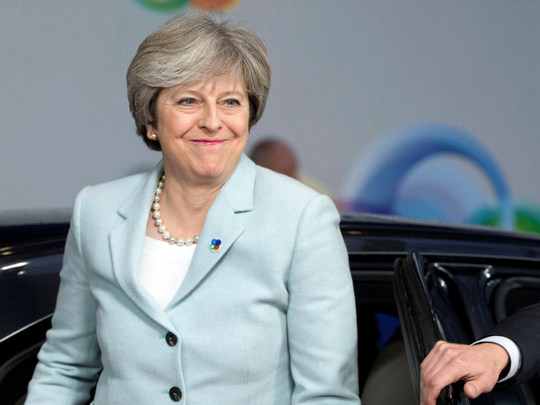
The entire British political establishment might be fixated with the Brexit negotiations, but this obsession with Britain’s future relationship with the European Union (EU) means Britain is in danger of ignoring a number of important developments taking place elsewhere in the world.
The political travails of Germany’s Chancellor Angela Merkel, for example, should occasion a spirited debate about whether Britain can take advantage of her difficulties to shift the balance of power in Europe in London’s favour. Instead all we have is a mealy-mouthed discussion about whether it means we can save on our Brexit bill.
It is a similar situation in Zimbabwe where, as the architect of the country’s post-colonial political settlement, one would have thought the British government had a crucial role to play in orchestrating the arrangements for the post-Mugabe era. Instead, as former foreign secretary William Hague noted, Britain has been reduced to the status of impotent bystanders as the Chinese, whose entry into the Zimbabwean political landscape is recent and commercially driven, find themselves conducting Robert Mugabe’s ouster.
Syria is another example of Britain’s declining influence. After the important contribution the British military has made towards defeating Daesh (the self-proclaimed Islamic State of Iraq and the Levant), London should have a voice in any peace settlement. Yet, the proposed peace deal is being hammered out between Moscow and Washington, with British officials reduced to the status of spectators on the sidelines.
Given the importance of the Brexit negotiations to Britain’s future, it is understandable that ministers feel they have enough on their plate without having to bother worrying about time-consuming diversions. Yet, by taking a back seat in deliberations on so many issues relating to the non-Brexit world, Britain is in danger of seeing a further erosion in its global influence. And it also runs the risk of not taking seriously the adverse impact that some of the more dramatic changes could have on our national wellbeing.
Last week’s warning, for example, by Conservative member of parliament Robert Jenrick about the “blind spot” Britain has over Iran, and its malevolent influence in the Middle East, is a case in point. In an article for Telegraph.co.uk, Jenrick said MPs were paying insufficient attention to Iran’s growing military strength, as well as its de-stabilising influence in the region through support for terrorism. This is an important issue, as it affects Britain’s long-standing ties with moderate Gulf states, and underestimating the threat posed by Tehran could seriously damage the United Kingdom’s own security considerations.
This failure to grasp the region’s rapidly changing dynamics, moreover, has been evident in London last week, where the Royal United Services Institute (Rusi), one of Britain’s leading military think tanks, has taken the surprising decision to invite the Qatari Foreign Minister, Shaikh Mohammad Bin Abdul Rahman Al Thani, as a key speaker at a counter-terrorism conference. Qatar is currently subject to a boycott by Saudi Arabia, UAE, Egypt and Bahrain over its links to Iran, as well as complaints that it is funding militants with a pronounced anti-western agenda. Among those said to be beneficiaries of Doha’s largesse is Abdul Hakim Belhaj, a renowned Libyan extremist who is currently suing MI6 and former foreign secretary Jack Straw over allegations that they were involved in his torture when Muammar Gaddafi was still in power in Libya.
Belhaj has now been accused of trying to block the extradition of Hashem Abedi, the brother of Manchester Arena bomber Salman Abedi, whom British police want to question about his alleged role in the suicide attack that killed 22 people and injured scores more.
Given the extent of the charge list against the Qataris, the sensible move would be to ask the Qatari foreign minister, why his country is playing such a key role in financing and supporting extremists? Those are certainly the sort of questions the families of those killed and injured in the Manchester atrocity would like to hear the answers to.
Yet, such is the state of confusion in British foreign policy-making circles today that, instead of being held to account for his country’s actions, Al Thani has instead been invited to share a stage with such luminaries of the British intelligence establishment as Sir John Scarlett, the former head of MI6, and Paddy McGuinness, the deputy head of Britain’s National Security Council and one of British Prime Minister Theresa May’s closest advisers on intelligence issues.
The Qatari foreign minister may well, given his country’s expertise in the matter, have some interesting insights to share on dealing with extremists, but his appearance in London says more about the dangerous policy vacuum that currently prevails in Whitehall on any issue that does not relate directly to Brexit.
— The Telegraph Group Limited, London, 2017
Con Coughlin is the Daily Telegraph’s defence editor and chief foreign affairs columnist.









